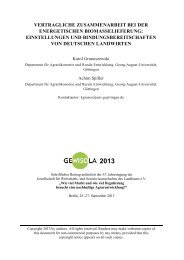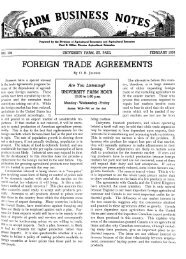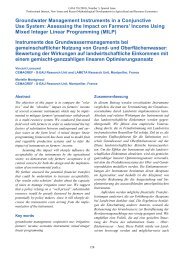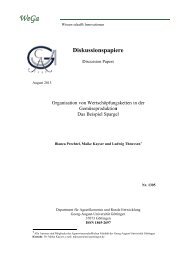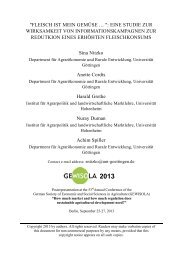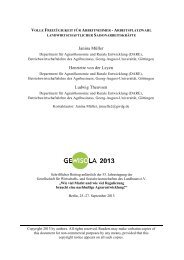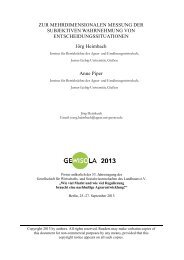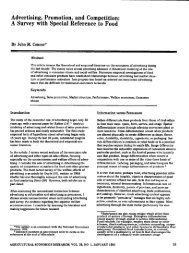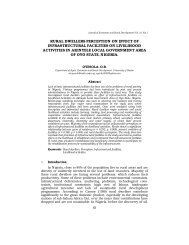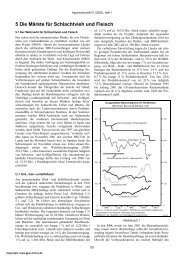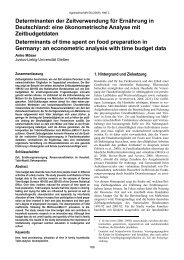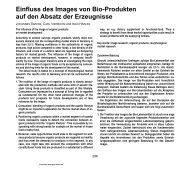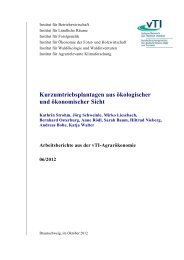District Institutes of Education and Training - Teacher Education
District Institutes of Education and Training - Teacher Education
District Institutes of Education and Training - Teacher Education
Create successful ePaper yourself
Turn your PDF publications into a flip-book with our unique Google optimized e-Paper software.
<strong>District</strong> <strong>Institutes</strong> <strong>of</strong> <strong>Education</strong> <strong>and</strong> <strong>Training</strong>: A Comparative Study in Three Indian States<br />
our sample that routinely made arrangements to ensure de-briefings for staff<br />
members who had not attended trainings; some element <strong>of</strong> this was also found in<br />
the Lok Jumbish DIET. Elsewhere, those in the DIET who would be involved in<br />
a cascade programme but did not attend training received no benefit at all from<br />
the discussions <strong>and</strong> training which a colleague had attended.<br />
The research project was warmly welcomed by those staff who sought a<br />
pr<strong>of</strong>essional development opportunity:<br />
We are working as practitioners. With you we will be able to share your<br />
experiences as educationalists <strong>and</strong> researchers. We will be able to share research<br />
experience <strong>and</strong> that’s a big thing. This is our first need. We who are working in<br />
this faculty, for our own capacity-building there is nothing. We try to build our<br />
capacity <strong>and</strong> apply in the field. We learn from the people in the field <strong>and</strong><br />
improve ourselves <strong>and</strong> again do it. Today this is the only thing we have for<br />
learning. Nothing else (RAJ/MAS TT01 25.1.99)<br />
However, not everyone sought such opportunities. There were staff in all these<br />
DIETs, except Surat <strong>and</strong> Masuda, who were content to do the minimum <strong>of</strong> what<br />
they described as ‘their duty’, reflecting the ‘government mentality’ unfavourably<br />
commented on by some <strong>of</strong> the h<strong>and</strong>picked Lok Jumbish recruits.<br />
Another avenue for pr<strong>of</strong>essional development opportunities might have come<br />
through links with non-governmental organisations. The link between Masuda<br />
<strong>and</strong> the resource organisation for the Lok Jumbish programme was the only strong<br />
link in our sample: Surat DIET had explored possibilities but not found any<br />
relevant non-governmental organisations in the <strong>District</strong>. Indore DIET had been<br />
approached for help by a local non-governmental organisation working with slum<br />
children <strong>and</strong> collaboration possibilities were being explored. Udaipur, Santrampur<br />
<strong>and</strong> Dhar DIETs did not have any links with non-governmental organisations. The<br />
idea <strong>of</strong> linking DIETs with non-government organisations had, in these ways, been<br />
explored, but had not really flourished. Since the DIETs’ developmental needs are<br />
diverse, it is likely that they could be better met by drawing on a network <strong>of</strong> nongovernment<br />
organisations, perhaps put together at the State level, who could<br />
provide support for DIETs within identified areas <strong>of</strong> their own expertise.<br />
3.5 Activities <strong>of</strong> the DIET<br />
3.5.1 Branch activities<br />
As the project progressed, the research team found that the pre-service <strong>and</strong> inservice<br />
branches <strong>of</strong> the DIETs were active, but there were tensions in the other<br />
branches. These findings reflect the views <strong>of</strong> the teachers in the Gaamru <strong>and</strong><br />
60 DFID



